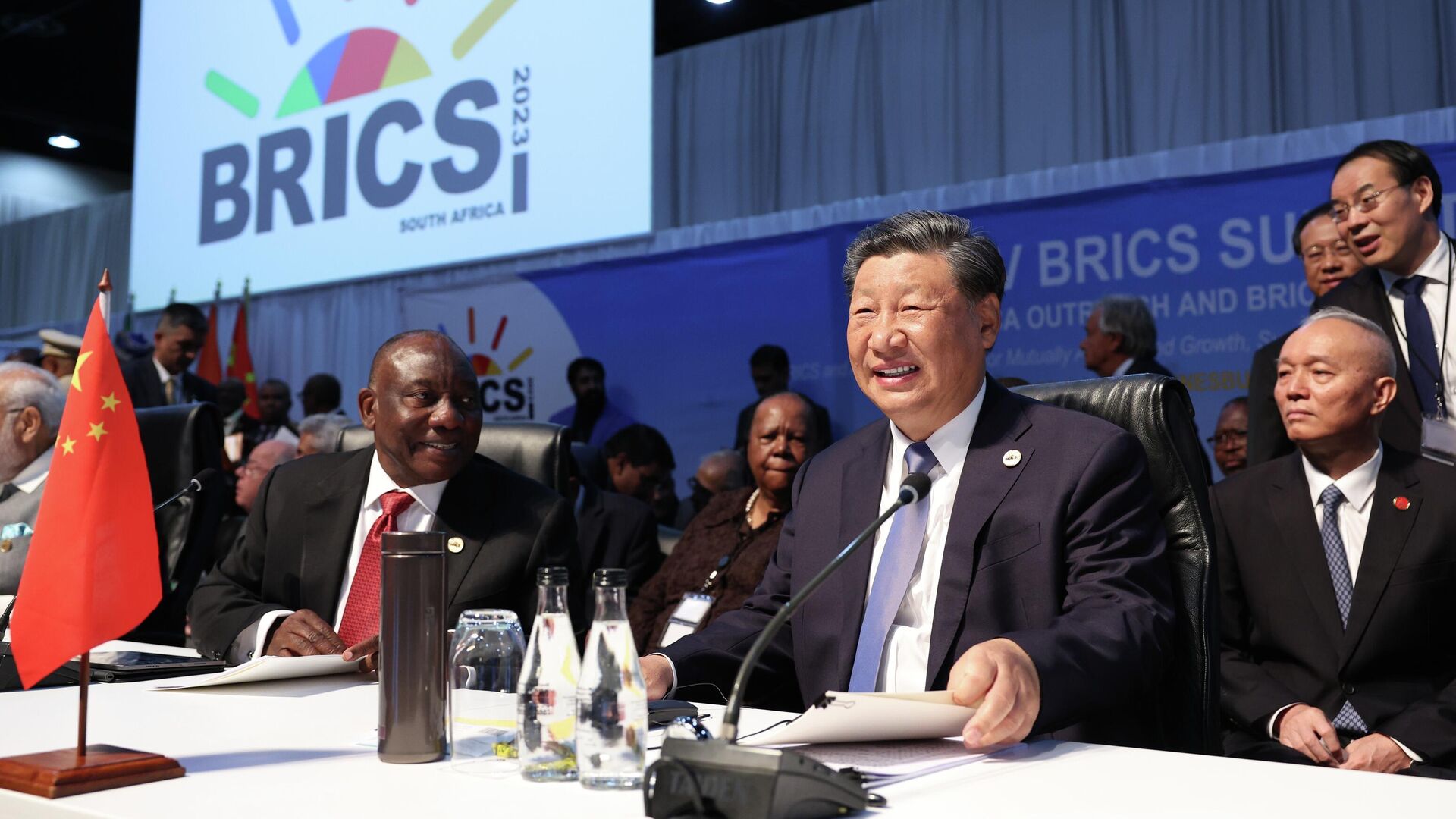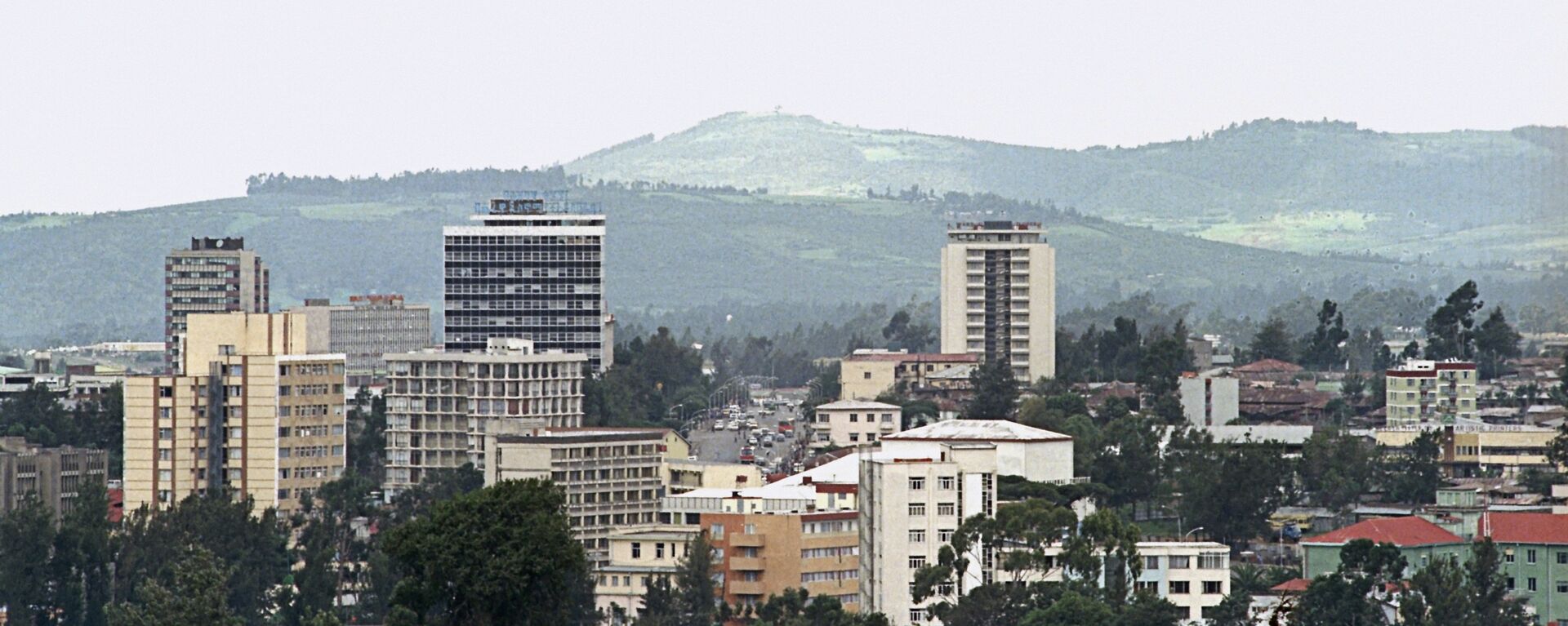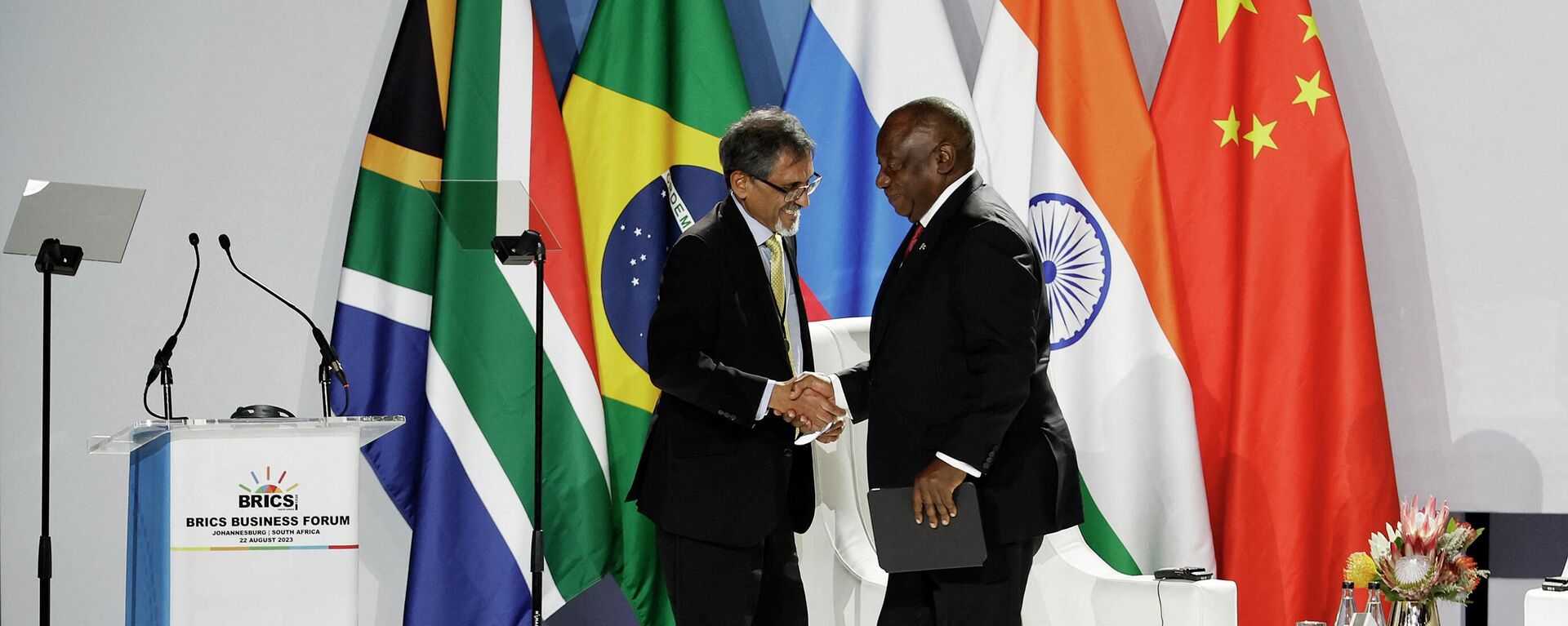https://en.sputniknews.africa/20230825/brics-expansion-signals-shift-in-global-power-dynamics-offers-hope-for-africa-eswatini-prince-1061620977.html
BRICS Expansion Signals Shift in Global Power Dynamics, Offers Hope for Africa: Eswatini Prince
BRICS Expansion Signals Shift in Global Power Dynamics, Offers Hope for Africa: Eswatini Prince
Sputnik Africa
The recently concluded 15th BRICS Summit in Johannesburg marked a momentous decision to expand the format of the group. Six countries, including Ethiopia and... 25.08.2023, Sputnik Africa
2023-08-25T14:42+0200
2023-08-25T14:42+0200
2023-08-28T10:51+0200
2023 brics summit in johannesburg
brics expansion
brics summit
brics
eswatini (swaziland)
johannesburg
ethiopia
egypt
https://cdn1.img.sputniknews.africa/img/07e7/08/19/1061622506_0:258:3096:1999_1920x0_80_0_0_0d98075b15b7d85a3305008b465d9fc1.jpg
The recent expansion of the five-member alliance of the world's emerging economies, BRICS, is a move that holds significant implications for the African continent and the global South, as it paves the way for further growth and potential opportunities for other interested nations, Thubumuzi Dlamini, Prince of the Royal House of Eswatini, told Sputnik Africa.The prince expressed his keen interest in the proceedings and closely followed the discussions that unfolded during the summit. Recognizing the importance of BRICS in shaping the future of Africa, the prince welcomed South Africa's role as the host nation and emphasized the positive impact BRICS could bring to the region.The discussions surrounding the future of BRICS and the relationship between countries within the South-South framework were particularly encouraging for Prince Dlamini.According to the Prince, one of the key advantages that African and global South nations stand to gain from BRICS membership lies in technological advancements.As nations like Russia, China, India, and Brazil bring forward their high-level technologies, African nations can leverage these partnerships to bridge the technology gap, he said.Beyond technological benefits, BRICS is viewed as a transformative platform for establishing a fair and equitable global order. Citing historical neocolonial approaches and practices, Prince Dlamini stressed the significance of rebalancing global powers.However, with the emergence of the BRICS bloc, the dynamics are shifting, Prince Dlamini noted. He underlined the importance of finding support from BRICS countries, as this alternative force presents an opportunity for African nations to garner assistance and pursue their own developmental agendas.The 15th BRICS Summit, held in Johannesburg, concluded on Thursday. Two African states – Egypt and Ethiopia – have been invited to become full BRICS members starting January 1, 2024, South Africa's President Cyril Ramaphosa stated during the bloc's leaders' speech at a press-conference on the final day of the BRICS summit.In addition to the two African nations, Argentina, Iran, Saudi Arabia and the United Arab Emirates have been invited to join the club early next year. According to the South African president, the admission of the new members is the first phase of the group's expansion process, as more than 20 countries have officially applied to join the bloc.
https://en.sputniknews.africa/20230825/ethiopias-brics-entry-offers-win-win-prospects-political-expert-reveals-1061618301.html
https://en.sputniknews.africa/20230824/whole-world-will-benefit-from-brics-expansion-says-south-african-trade-minister-1061602861.html
eswatini (swaziland)
johannesburg
ethiopia
egypt
Sputnik Africa
feedback@sputniknews.com
+74956456601
MIA „Rossiya Segodnya“
2023
Muhammad Nooh Osman
https://cdn1.img.sputniknews.africa/img/07e7/04/0a/1058467512_0:0:1280:1280_100x100_80_0_0_ec723833bcbfcaed2e21952965ad99e4.jpg
Muhammad Nooh Osman
https://cdn1.img.sputniknews.africa/img/07e7/04/0a/1058467512_0:0:1280:1280_100x100_80_0_0_ec723833bcbfcaed2e21952965ad99e4.jpg
News
en_EN
Sputnik Africa
feedback@sputniknews.com
+74956456601
MIA „Rossiya Segodnya“
Sputnik Africa
feedback@sputniknews.com
+74956456601
MIA „Rossiya Segodnya“
Muhammad Nooh Osman
https://cdn1.img.sputniknews.africa/img/07e7/04/0a/1058467512_0:0:1280:1280_100x100_80_0_0_ec723833bcbfcaed2e21952965ad99e4.jpg
brics expansion, brics summit, brics, eswatini (swaziland), johannesburg, ethiopia, egypt
brics expansion, brics summit, brics, eswatini (swaziland), johannesburg, ethiopia, egypt
BRICS Expansion Signals Shift in Global Power Dynamics, Offers Hope for Africa: Eswatini Prince
14:42 25.08.2023 (Updated: 10:51 28.08.2023) Muhammad Nooh Osman
Writer/Editor
Exclusive
The recently concluded 15th BRICS Summit in Johannesburg marked a momentous decision to expand the format of the group. Six countries, including Ethiopia and Egypt, were approved to join BRICS as full members from January 1, 2024.
The recent expansion of the five-member alliance of the world's emerging economies, BRICS, is a move that holds significant implications for the African continent and the global South, as it paves the way for further growth and potential opportunities for other interested nations, Thubumuzi Dlamini, Prince of the Royal House of Eswatini, told Sputnik Africa.
The prince expressed his keen interest in the proceedings and closely followed the discussions that unfolded during the summit. Recognizing the importance of BRICS in
shaping the future of Africa, the prince welcomed South Africa's role as the host nation and emphasized the positive impact BRICS could bring to the region.
The discussions surrounding the future of BRICS and the relationship between countries within the South-South framework were particularly encouraging for Prince Dlamini.
"We are looking forward to a stronger BRICS," Prince Dlamini told Sputnik Africa. "I believe now quite a few countries have been accepted to be part of the group, and that should be able to strengthen the group and benefit all of us in the South."
According to the Prince, one of the key advantages that African and global South nations stand to gain from BRICS membership lies in technological advancements.
As nations like Russia, China, India, and Brazil bring forward their high-level technologies, African nations can
leverage these partnerships to bridge the technology gap, he said.
"We, as Africans, are a little bit behind in terms of the technologies and that therefore it should be very helpful for us to have partners such as the strong, strong bloc," Prince Dlamini stated.
Beyond technological benefits, BRICS is viewed as a transformative platform for establishing a fair and equitable global order. Citing historical neocolonial approaches and practices, Prince Dlamini stressed the significance of rebalancing global powers.
"Well, it's very important that there's a balance of the powers. We've been typically very much Westernized, in particular us, in Southern Africa, and half the continent was split up between the English, the Americans, the French and so on," the prince admitted.
However, with the emergence of the BRICS bloc, the dynamics are shifting, Prince Dlamini noted. He underlined the importance of finding support from BRICS countries, as this alternative force presents an opportunity for African nations to garner assistance and pursue their own developmental agendas.
"We can no longer rely on the West 100%. There will be now another force in which we can be able to get some help," the prince concluded. "So we look forward to the support from the BRICS countries as an African continent."
The 15th BRICS Summit, held in Johannesburg, concluded on Thursday. Two African states – Egypt and Ethiopia –
have been invited to become full BRICS members starting January 1, 2024, South Africa's President Cyril Ramaphosa stated during the bloc's leaders' speech at a press-conference on the final day of the BRICS summit.
In addition to the two African nations, Argentina, Iran, Saudi Arabia and the United Arab Emirates have been invited to join the club early next year. According to the South African president, the admission of the new members is the first phase of the group's expansion process, as more than 20 countries have officially applied to join the bloc.





